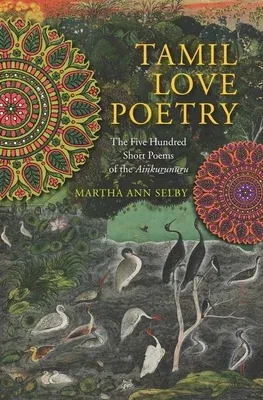Tamil Love Poetry: The Five Hundred Short Poems of the Ainkurunuru, an Early Third-Century AnthologyPaperback, 7 June 2011

Qty
1
Turbo
Ships in 2 - 3 days
In Stock
Free Delivery
Cash on Delivery
15 Days
Free Returns
Secure Checkout

Reading Age
Ages: 22
Grade Levels
17
Part of Series
Translations from the Asian Classics
Part of Series
Translations from the Asian Classics (Paperback)
Print Length
256 pages
Language
English
Publisher
Columbia University Press
Date Published
7 Jun 2011
ISBN-10
0231150652
ISBN-13
9780231150651
Description
Product Details
Audience:
Ages: 22
Book Format:
Paperback
Country of Origin:
US
Date Published:
7 June 2011
Dimensions:
22.61 x
15.24 x
1.52 cm
Educational Level:
Grade Levels: 17
ISBN-10:
0231150652
ISBN-13:
9780231150651
Language:
English
Location:
New York
Pages:
256
Publisher:
Weight:
299.37 gm